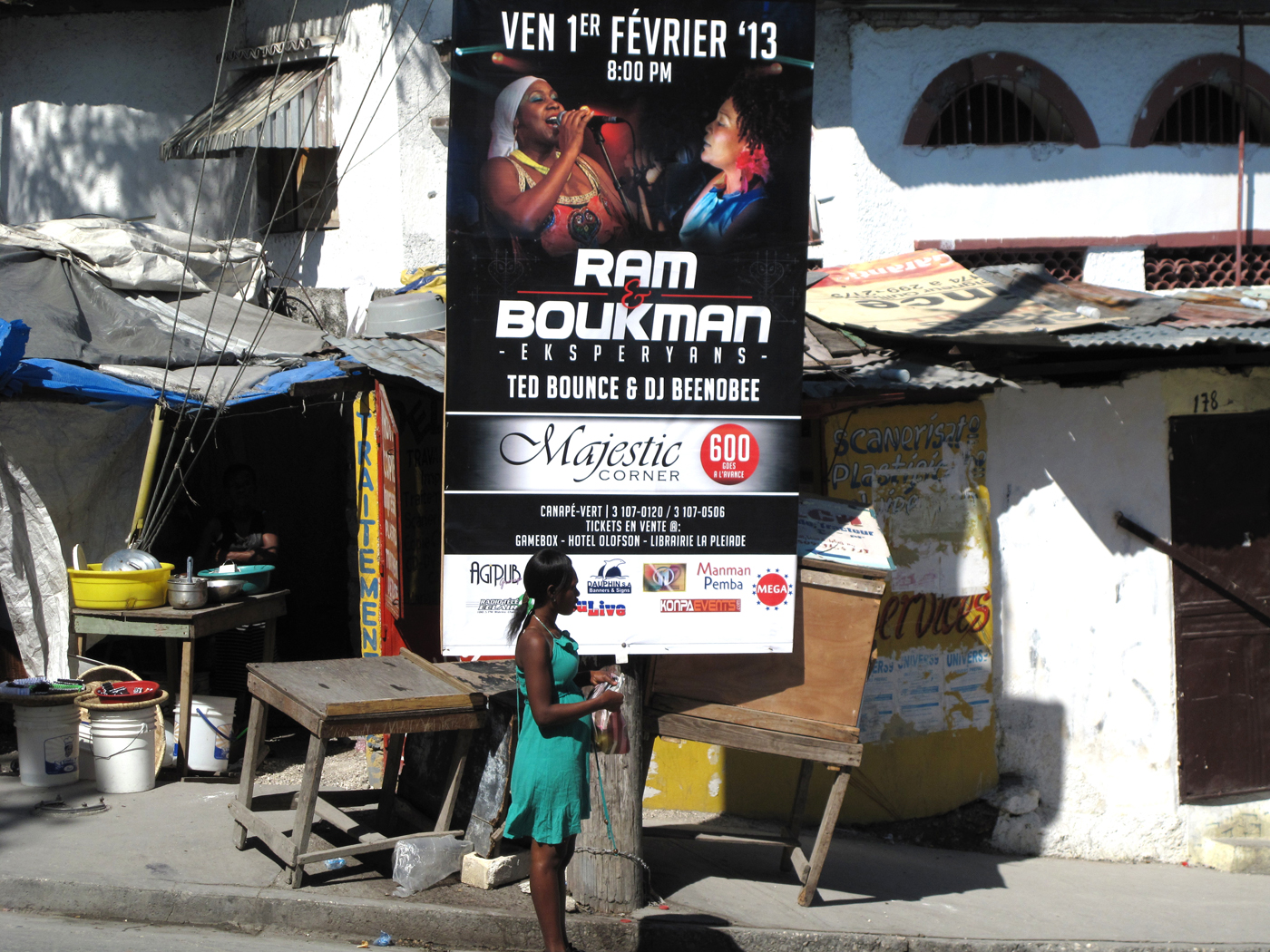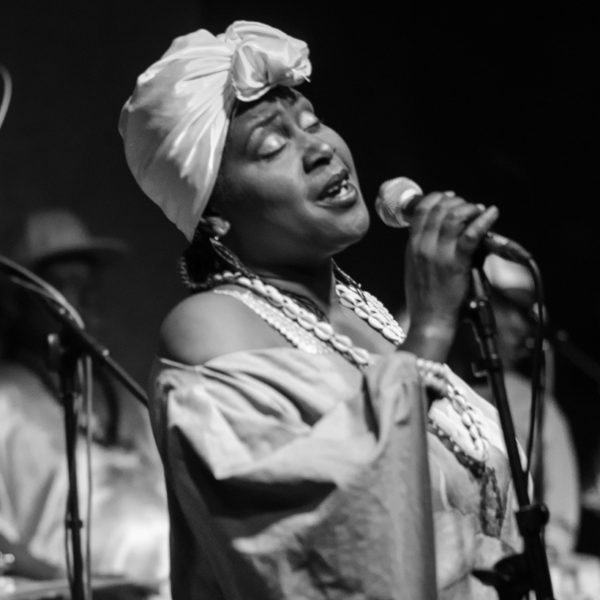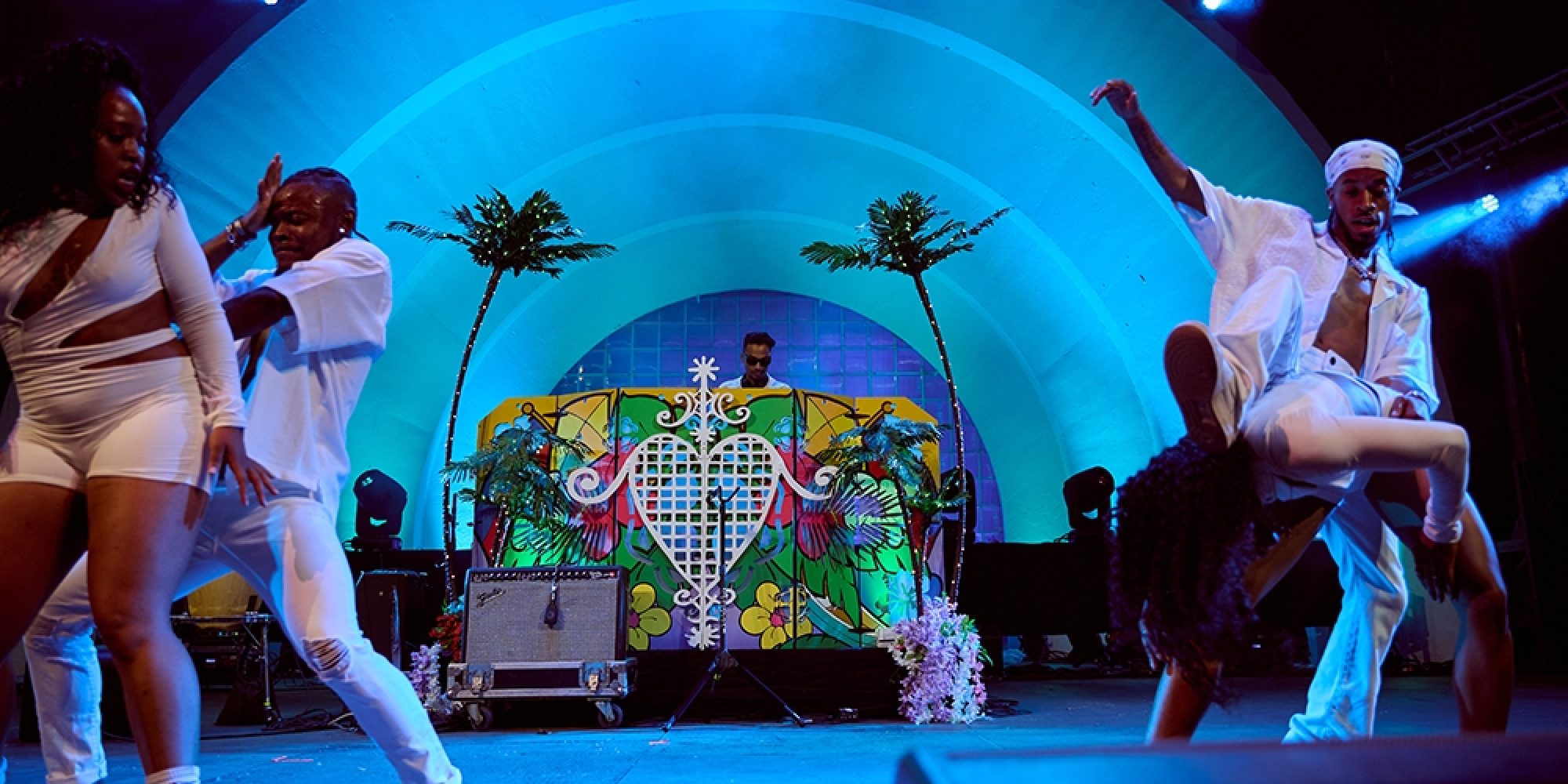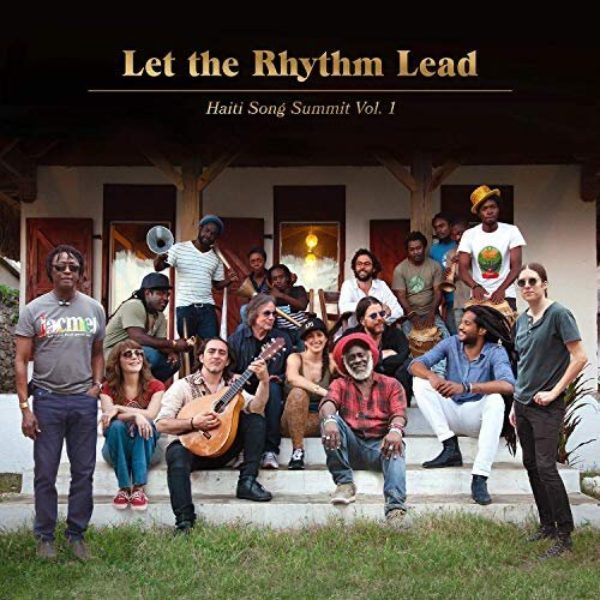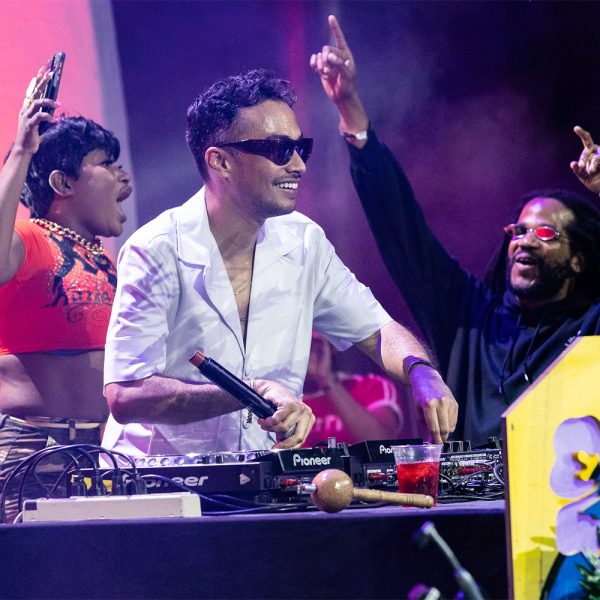Michaël Brun is a Haitian DJ and record producer based in New York City. Brun grew up steeped in traditional Haitian styes like rara and kompa, and as an artist, he’s made his mark infusing these influences into electronic dance music. He burst on the scene in 2011 with a series of singles and EPs, and major appearances at the likes of Coachella and Electric Daisy Carnival. His 2019 album, Lokal, is a tour de force of 21st century Haitian musical life, a sonic kaleidoscope from trad to techno. Brun’s latest project is BAYO - an immersive celebration of Haitian creativity, culture, and community. The next BAYO edition will take place at Barclays Center on June 28, at a time Haitians have been repeatedly vilified by the current U.S. President, and risk losing their Temporary Protected Status as immigrants. Banning Eyre reached Brun by Zoom to discuss his work and the upcoming BAYO event in Brooklyn.
Banner image by @AshleyCultivated.
Banning Eyre: Michaël, it's great to meet you. I've enjoyed your work. I'm a big fan of your album, Lokal.
Michaël Brun: Thank you so much.
To start, please introduce yourself and tell us a bit your story.
Okay. I'm a DJ, producer, and artist from Port-au-Prince, Haiti. And my entire career has been about building bridges from Haiti to the rest of the world.
Well, let’s dive in. Tell us about BAYO, and give us the rundown on what's going to go down at the Barclay Center.
So, Bayo in Creole translates as “to give,” and it was an event that we imagined. The very first one was so impromptu, and I think that was the magic of it. I had just done this studio project together with the Artists Institute in Jacmel, and then a couple of days before that, I was in La Gonâve working on another project with the beat-making lab. We were up on the top of a mountain in La Gonâve and there was this rapper Strong G, and then in Jacmel there was the Artists Institute, and we had students from the school and then Jay Perry and Walshy Fire from Major Lazer. It was a very eclectic group of people, but we all this shared love of music and a love of Haiti. And so, we did these sessions right after dinner. One of the nights we started playing music and we're like, “You know what? Let's take it to the street right in front of this restaurant in Jacmel.”
Somebody’s car was there, so we turned the car lights on the street and then brought out a speaker and started playing music and artists started freestyling and I was selecting songs and a crowd just naturally started coming together. That was literally the first version of BAYO, because it was this idea of us just having an inspiration. We wanted to share the music with the people. I wasn't even thinking about it as an event. It was just a very authentic shared moment amongst artists.
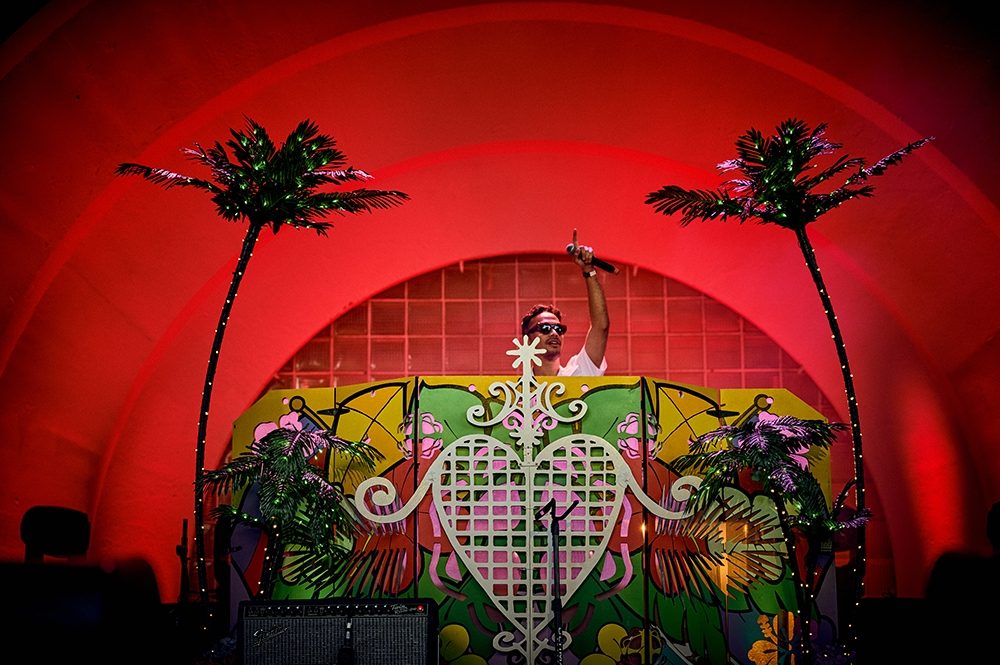
When was that?
This happened in 2016, nine years ago. And so I watched that happen in front of me and then it felt like a thing, but I didn't know what it was yet. So I was like, “Let me try this a couple more times.” And so I brought that idea of this like spontaneous pop-up event to Jacmel, and then we did it again in Port-au-Prince and Jalousie, which is a very big slum in Port-au-Prince. It's one of the biggest in the entire country, almost a million people on the side of this mountain in Jalousie. And I worked with artists from there. Actually, some of the members of the band Lakou Musik are from Jalousie. And so we were working on music there and it was the same thing. Maybe we should do this event here again.
And so we set up speakers. I invited some artist friends from different parts of the country and we did a spontaneous pop-up again. At that time, it was like a few hundred people. And then I realized, “Okay, this is a thing. This feels really special. It's all ages. Everybody's in this communal moment, this shared moment.” It felt like a proud moment to be Haitian. And so I took that concept and brought it to the States. We started doing it in Miami and New York, and now we're doing an arena. Who would have thought it would reach that stage of tens of thousands of people?
Fantastic. Can you give us an idea of who's going to be in the lineup that night?
So that's the thing with BAYO; that's what's so special. There's no lineup. It's all surprises. But I can say that we've had over a hundred artists from across the Haitian community, but also across the international diaspora community, from artists from West Africa, like Joe Boy, Mr. Eazi, Adekunle Gold, to classic Haitian artists like Emeline Michel, Tabou Combo, to the more upcoming Haitian artists like Durkheim. We've had Jay Perry, Paul Beaubrun, and then also artists from different parts of the world that are somehow connected to, I feel like, the core of Haiti. So like artists like J Balvin from Columbia or Maxwell from New York, and like all of these different genres are represented, all of these different sounds and generations within the context of what we experience in this moment in Haiti. And I will DJ and MC it. So as the night goes on, it's like you're going to an event and you're getting surprises back-to-back-to-back-to-back. So I can't wait for people to just see what happens because it's a very special thing.
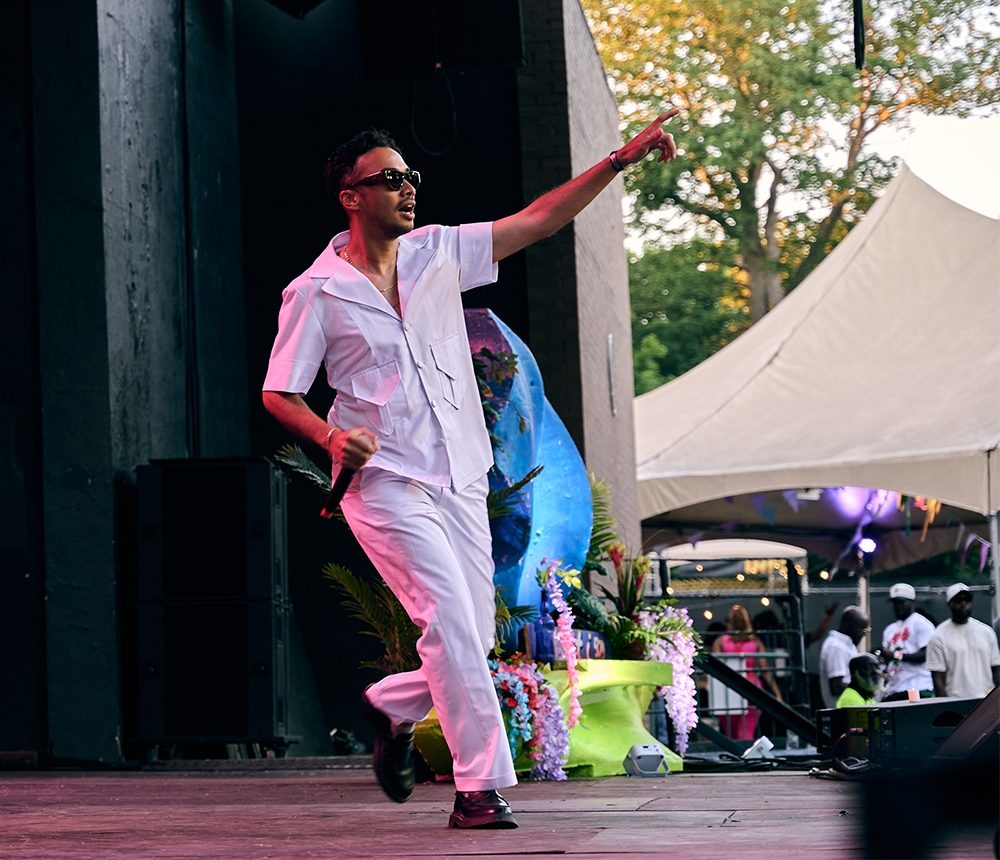
You're doing this at a fraught moment, both in Haiti's history with the sort of political breakdown and gang violence that's happening there, but also in the U.S. with all the trauma surrounding immigrants and immigration, and particularly Haitians. Talk about the context for this particular BAYO.
Like you said, it's one of the most tumultuous moments for Haiti, but I actually feel it’s true globally. I think it's a very complicated time to be a human right now. It's tough. And I think in these moments, community bonding and bridge building are more important than ever. And I think that culture and music have a very special way of uniting people in an intangible, very, very honest way that nothing else can accomplish, right? So I think that with an event like BAYO, that's built on a foundation of love and community and authenticity and respect, to be able to have it in this moment where there's so much going on and it's so crazy everywhere, it's like an oasis. That's how I view it. I want this to feel like a refreshing, revitalizing experience for anybody who attends, so that they feel reinvigorated to work on making the world a better place. And I think that music has allowed me to experience that so many times.
Haiti has given me so much, just my heritage and my pride of my country and my people… it’s something that grounds me and gives me strength. And I want everybody I meet to not only see how much that has brought me joy in my own life, but also maybe it helps them find joy in their life if they're seeking it, right?
So yeah, I think in a moment like this when all this is happening, it's an opportunity to tell that story and to have these bridges that give a sense of safety. That to me is what I've always hoped to do with my career. It's the reason I've collaborated as much as I have. I think it allows me to not only tell my own story, but also share other people's stories, because there are all these different perspectives, and you come away feeling more full, like a more complete version of yourself. That's my takeaway. Hopefully, everyone who comes to the show feels like that too.
I saw the video of your meeting with John Legend in Springfield, Ohio. That was interesting. I didn't actually realize that he'd come from that town. What was that like?
That was such an amazing experience for many reasons. There are layers to this. We had actually been working, a year before, on some music, and of course we talked about Haiti, but we never made the connection until all of the news was coming out of Springfield when there was… Well, it was a pretty intense and sad moment, right?
Yes. It was a really shocking moment to hear those words being thrown around so casually.
It was. And it wasn't true. I think that that aspect was even more impactful because it made me respect John so much for the fact that he spoke up. To be able to give it context, right, to be able to say, “Hey, this is my hometown. The immigrant population is reinvigorating my hometown and there is verifiable evidence to prove this, and we're working with the community to share and to explain the benefits that the Haitian community has brought to Springfield.” So to have somebody with John’s kind of stature and respect and seemingly no connection to Haiti, right? I respected him so much for that. And so we spoke about it shortly after he posted that video on his Instagram, and we talked about the song we had been working on, and it made a lot of sense. It gave a lot of context.
So we planned this trip together to go back there and go to this Haitian restaurant that opened a couple of years before. Because a lot of the lies that were being spread were about the things that we eat, right? And so we said, “Let's go. We'll actually share what Haitians really eat.”
Brilliant.
Yeah, so people can have an experience and see our culture for what it really is. And I really, really appreciate the time that he took to do that, and that we were able to go and support Rose and her restaurant and her immigrant story and how much she's brought to her community and highlight these different people, and to highlight Rutshelle [Guillaume], who's an amazing artist who worked on the song with us too, and J Perry and Rose and John's story. I'm so proud of that moment because it's just all of the different things that I love from food to music to culture to bridge-building again. It felt like an important thing, and hopefully it helped to change some perspectives as well.
Let’s talk for a minute about Haitian music on the international scene. Groups that have been around for a long time, particularly Boukman Eksperyans, are the standing icons of Haitian music, but there but there's so much more bubbling up. How do you see things now for Haitian music on the global stage?
It’ss so exciting right now. There's never been more good music at once, in my opinion. And what's so cool too about the way that the internet is working at this specific moment is, a lot of these classic songs are being recontextualized and coming back into the consciousness. So you have even things like Coupe Cloué and classic Haitian early kompa, right? Like it's coming back around and being reintroduced to kids.
That to me feels like the best moment that we've had musically in our history. And it allows everybody to have their space and everybody to have their moment to shine. It’s like hearing all of our traditional genres, and then these flipped versions of those genres that incorporate international sounds. It's so inspiring as a producer. I love seeing this and I love seeing everybody having a moment to shine. And I think it's just the beginning too. I think there are going to be a lot more exciting things happening because there's a lot of new experiences that people are having now between everything going on with immigration and the fact that there's more access to the internet than ever before. I genuinely think that we're entering a golden age of Haitian music. It's going to be amazing.
You know, if you feel like it, I'd love you to put together a playlist for us of some of those tunes that are coming around again. You mentioned Coupe Cloué. I remember back in the ‘80s. My sister was just out of college, and she did a volunteer program in Haiti working with a doctor in Gonaives. She brought me back an album of Coupe Cloué knowing that I was into African music. It was beautiful, and that was my introduction to Haitian music. I'm a guitar player and I love Congolese music, and I was hearing a connection to that in kompa. Anyway, if you feel like doing a playlist, we would love it.
Yeah, definitely.
I'm glad to hear you say that you're feeling that vibe, that energy. It's crazy how places that go through really traumatic moments often produce powerful, even uplifting, music. I mean, look at the Congo, such a profound example. The country has about as tragic a history as you can possibly imagine, and yet it's produced this joyous music that had all of Africa dancing through the 90s and 80s and 70s.
Definitely. You know, I work very closely with a lot of Congolese artists. I actually just released something with an artist called KeBlack from, he's French Congolese, but we felt in the room when we working together, it was like, I don't know, it's like we knew each other our whole lives. It's really crazy to have that kind of bond amongst our cultures. I think that that's the thing with Haitian history is I feel like we're alchemists. Whatever we're given, we transform it, we make it into something else. And I felt that with Congo. There's something in our lineages that are linked that we might not even realize. And it's a superpower.
It is very deep, that whole conversation between Congo and Caribbean. Well, is there anything else you might want to say about the event at the Barclay Center, a message you want to get out?
My goal with this event, with BAYO, is that for everybody who comes to the show will experience the best day ever in Haiti. Like if everything went right, if everything sounded right, if everything tasted right, if it was just like the dream version of my day in Haiti, this is it. When you come here, you're gonna leave inspired, you're gonna feel refreshed, you're gonna feel excited. That's what we've been building towards, and to be able to do it at the Barclays is just like a dream come true. I'm incredibly proud to be able to do this. I'm incredibly proud to be Haitian and to be able to share our stories. And I can't wait for people to experience the surprises. The surprises are really special. So, hope to see you there.
I can't wait to experience the perfect day in Haiti at the Barclays Center. Thanks much for talking with me.
Thank you. And actually, I’ve followed your series before, so I appreciate you highlighting us and thank you for your work as well.
Always good to hear.
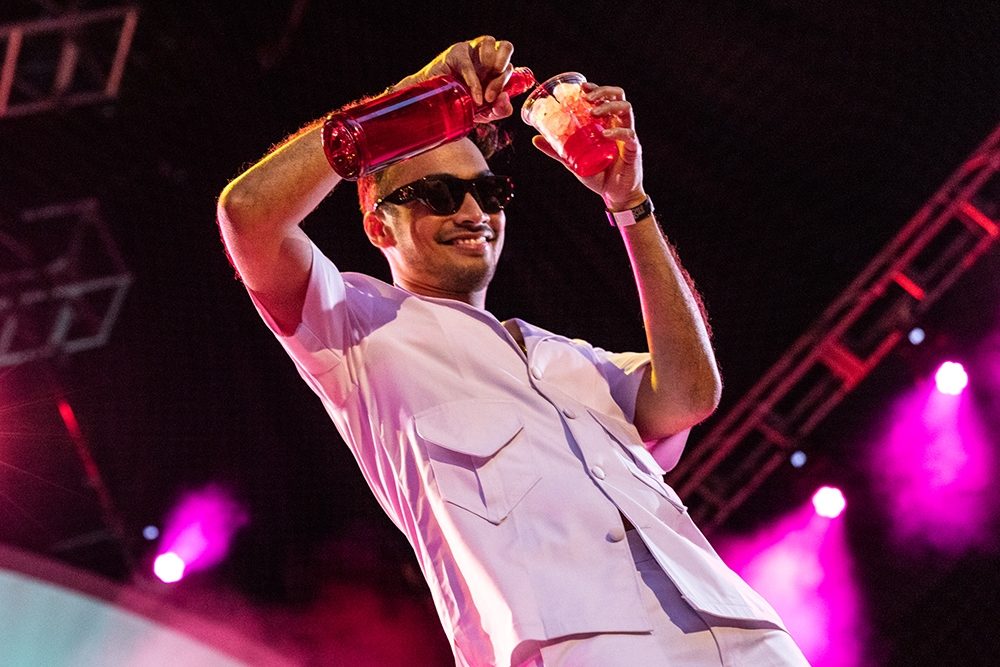
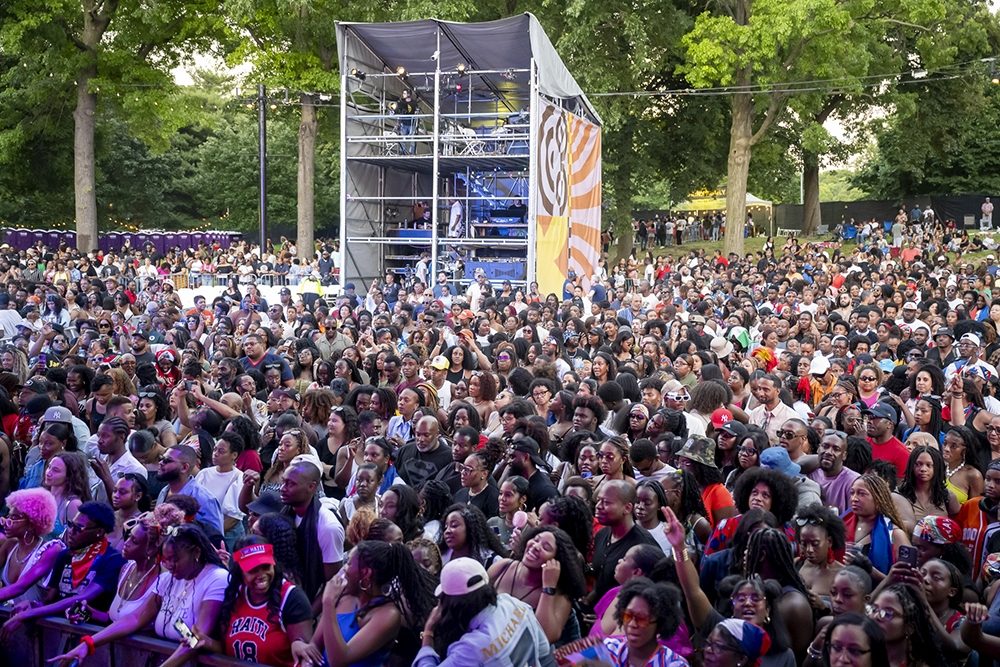
Related Audio Programs
